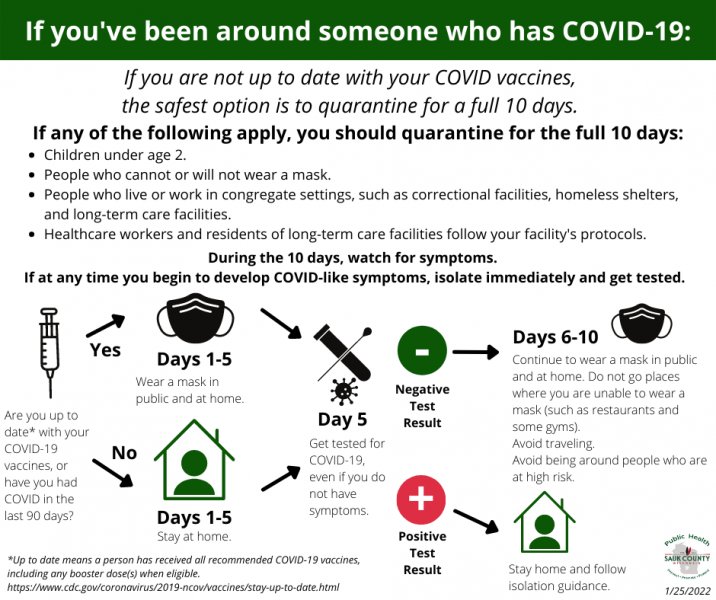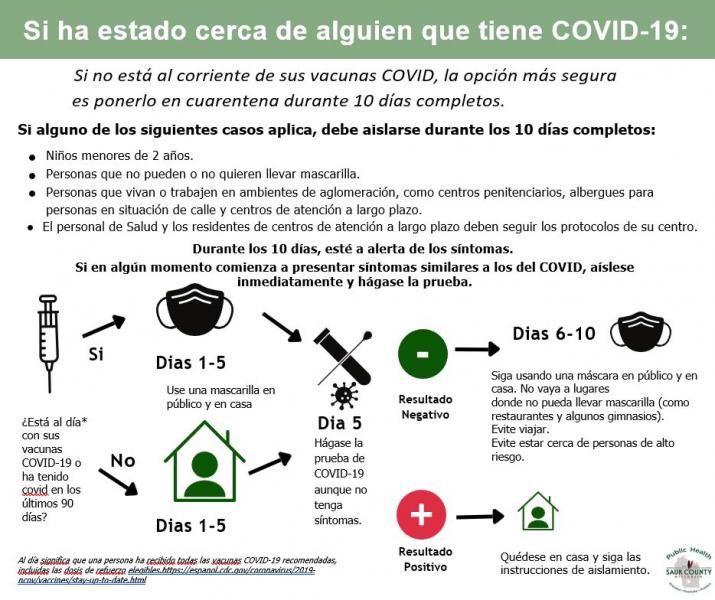-
Departments
-
- Departments Accounting Administration Aging and Disability Resource Center Arts & Culture Program Building Services Child Support Circuit Courts Clerk of Courts Coroner Corporation Counsel County Clerk Justice, Diversion, and Support
- Departments DNR Forester District Attorney's Office Emergency Management Environmental Health Extension Sauk County Health Care Center Health Highway Human Services Land Information/GIS Land Resources and Environment Management Information Systems
- Departments Parks and Recreation Personnel Register in Probate Register of Deeds Sheriff's Office Surveyor Treasurer Tri County Airport Veterans Service Victim Witness County Directory Social Media Links
-
-
Government
-
- County Board Board Members Meeting & Agendas Video Recordings Committees County Departments County Directory County Ordinances County Social Media Links Building Locations West Square Building Historic Court House Courthouse Annex Law Enforcement Center Health Care Center Highway Shop Human Services (Reedsburg) Parks and Recreation
- Calendar Meetings and Agendas Upcoming Meetings Meeting Videos on Granicus Video Recordings Forms and Documents Forms, Permits, and Applications Documents, Reports, and Presentations Policies Legal Notices/Press Releases Press Releases Legal Notices Foreclosure List Sheriff Incident Reports Open Records Request Sheriff's Dept Records General Records Request
- Voting / Elections MyVote - Polling Locations Register MyVote WI Election Results Bids and Proposals Submitting Bids / Bid Process Current RFPs, RFBs, RFQs State Government State Agencies Hours of Operation Hours
-
-
Community
-
-
Community News
Business / Economic Development Place Plan Start Up Resources Business Financing Chambers of Commerce Registration of Firm Name Creating an LLC Permits Revolving Loan Fund (RLF)/CDBG Persons with Disabilities Apply for Benefits Disability Rights Wisconsin Disability Benefit Specialists Housing Transportation Caregiver Resources Employment Training - Residents Voting Dog License Elected Officials Parks Recycling Renters Libraries Marriage School Districts Severe Weather Shelters Road Conditions DMV Services Sheriff's Incident Reports Online Services List of Online Services GIS Tax Parcel iSite Property Tax Info (ALRS) Pay Clerk of Court Fees
- Homeowner/Property Property Tax Information Property Maps Zoning Information Permits Recycling School Districts Residential Vacation Check Form Foreclosure List Family and Health Nurse-Family Partnership Immunization Program Women Infant Children Parks and Recreation Arts and Culture Libraries School Districts
- Seniors Retirement information Elderly Benefit Specialists Transportation Long Term Care Services Project Lifesaver Caregiver Resources Nutrition & Dining Centers Employment and Training Veterans Federal VA Services State Programs & Services Employment & Education Support Groups Health Care Home Loans Pension Benefits Transportation
-
Community News
-
-
Explore
-
-
ExploreSaukCounty.com
Parks Hemlock Park Lake Redstone Park Man Mound Park North End Boat Landing Sauk County Forest Summer Oaks Boat Landing Timme's Mill Weidman Woods White Mound Park Yellow Thunder Park -
Video Tour of Sauk County
Trails Great Sauk State Trail Hiking Horseback Skiing Snowmobiling Snowshoeing Outdoors & Nature Boat Landings Fishing Hunting Lakes, Rivers & Creeks Local Parks Natural Areas & Public Lands Nature Centers & Conservancies State Parks
Places to Eat & Drink Things to Do Places to Stay
-
ExploreSaukCounty.com
-
-
I Want To…
-
- Apply Marriage License Employment Passport Child Support Public Assistance Food Share Benefits BadgerCare Project Lifesaver Veteran's Benefits Dog License Permits Board of Adjustment Appeal/Zoning Appeal Arts & Culture Grants
- Request Obtain? Birth, Marriage, & Death Certificates Divorce Decree Court Transcripts White Mound Camping Reservation County Park Sticker Transportation Services Hunting Fishing Rec Permits Timber Cutting Permits Vehicle Registration Drinking Water Test Kits Soil Test Kits Pay Court Fees Traffic Tickets Property Taxes Child Support CPZ Fees
- File Divorce Will Deeds Property Liens Small Claims Guardianship Permits Claim for Service Related Disability (Veteran's) Appeal Zoning Ordinances Certified Survey Map Volunteer Aging & Disability UW Extension Parks Land Conservation Neighbor in Need
- Find Agendas and Minutes Property Tax Info Maps Foreclosures Sheriff's Incident Reports Warrant List Sex Offender Registry Zoning Info Voting/Election Info Sanitary/Septic Info Recycling Info Caregiver Relief/Assistance Genealogy Records Vote Register to Vote Polling Places
-
What To Do If You Are A Close Contact
Page Last Updated 1/26/2022 at 10:45 am
Vaccination, masking, and testing remain our most effective tools at preventing COVID-19. This means missing less work, school and time with friends and family. It also means less strain on our healthcare systems and less time waiting for care in the ER or hospital.

I was exposed to someone with COVID-19. What should I do?
COVID-19 spreads mainly from person-to-person through respiratory droplets and aerosols. If you find out that you’ve been in close contact with someone with COVID-19, you may be at risk of infection.
You are considered a close contact if any of the following occurred while you spent time with a person with COVID-19, even if they didn't have symptoms:
- You were within 6 feet of someone who has COVID-19 for a total of 15 minutes or more over the course of a day.
- You had direct physical contact with the person (handshake, hugged, or kissed them.)
- They sneezed, coughed, or somehow got respiratory droplets on you.
- You live with the person or stayed overnight with the person.
Steps to take after Close Contact


You should quarantine if
- You are ages 12 or older and have completed your primary Pfizer or Moderna vaccine series over 5 months ago and have not yet received a recommended booster dose
- You received a Johnson & Johnson vaccine over 2 months ago and have not yet received a recommended booster dose
- You are not fully vaccinated (you are unvaccinated or it has been less than 14 days since you received the last dose in your primary vaccine series)
- You tested positive for COVID-19 more than 90 days ago with a viral test.
You do not need to quarantine if
- You are up to date on recommended COVID-19 vaccines (including boosters and additional primary doses for some immunocompromised people)
- You tested positive for COVID-19 within the last 90 days using a viral test.
While you may not need to stay home, you should monitor for symptoms and wear a well-fitting mask around others for 10 days from your date of last exposure to someone with COVID-19. Get tested for COVID-19 at least 5 days after exposure (unless you've had a positive COVID-19 viral test result in the last 90 days).
What should you do if you need to quarantine?
- Stay home and away from other people. Do not go to work or school while in quarantine.
- Wear a well-fitting mask if you must be around others during quarantine.
- Avoid travel or going to places where you are unable to wear a mask during your quarantine period.
Get tested for COVID-19
It’s important that you get tested so you can prevent spreading COVID-19 to others. It is recommended to get tested 5 days after your exposure, even if you are fully vaccinated and even if you do not have any symptoms. If you develop symptoms of COVID-19, get tested right away. There are several ways to get tested for COVID-19 in Sauk County-click here to see available testing options.
Answer the call from your health department
Your local health department might reach out to you with more recommendations if you are identified as a close contact during contact tracing.
Self-monitor for Symptoms
The incubation period for SAR-CoV-2, the virus that causes COVID-19, can extend up to 14 days. That means you can develop symptoms of COVID-19 sometime in the 14 days after close contact with a person with COVID-19. It is recommended to monitor your health for 14 days after your last contact.
- Check your temperature twice a day, once in the morning and once at night. If you don't have a thermometer, watch for symptoms of fever like chills or sweats.
- Watch for cough, difficulty breathing, or other symptoms of COVID-19. Write down any symptoms you have and when they begin.
- If you develop symptoms of COVID-19, isolate and get tested. Tell your doctor or health care provider your symptoms to determine if you need medical care. Do not go to a medical office or clinic without contacting them first and informing them that you are experiencing COVID-like symptoms.
What if Someone in my home is sick from COVID-19?
- See the CDC guidance, Caring for Someone Sick at Home.
- The sick person should be in their own room and should have their own bathroom, if possible. They should have the door closed, and food and other needs should be left outside their door for them to pick up.
- The CDC has additional guidance for how to clean and disinfect your home if someone is sick, including how to clean surfaces, linens, dishes, and trash.
- The CDC also has information about how to minimize risk if you live in a house with close quarters (e.g., small apartment with more than one person or a house with multiple generations).
